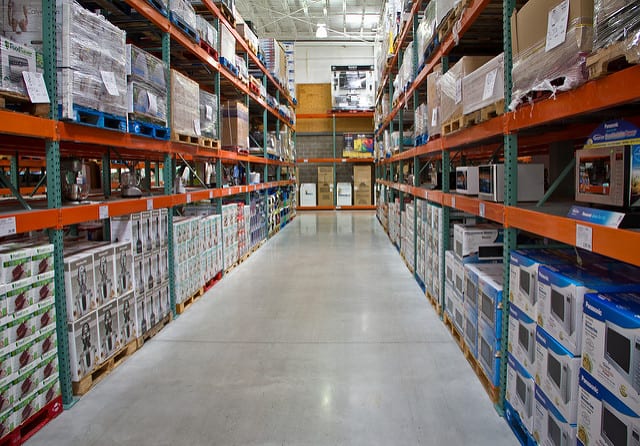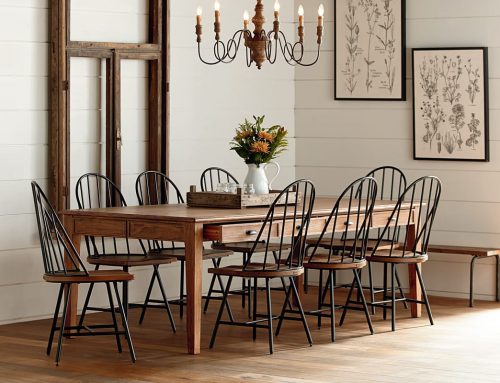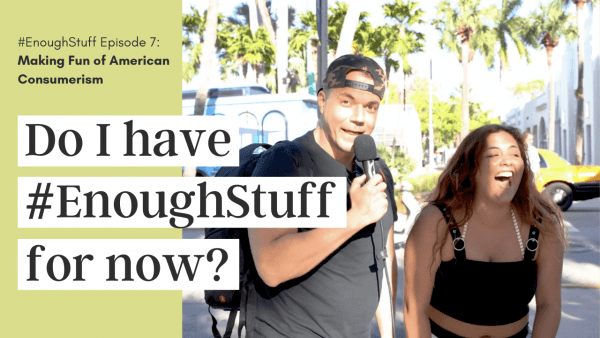At Postconsumers, we’ve been known to advise against bulk shopping at places like Costco. You’ve certainly heard us say things like “more isn’t always better” or “you’re not saving if most of what you use goes to waste” several times over. Let’s be honest – more than several times. But the truth is that even for the most adamant Postconsumer who is trying to buy less, live more, bulk shopping can sometimes make sense. But how do you balance when it’s appropriate to bulk shop and when you’re simply buying into the mind game that is all about buying as much as you can while paying as little as you can? We have some thoughts on the issue (of course) and we certainly aren’t addressing people who have no other choice due to economic circumstances, an American travesty!
As a Disclaimer, We are Not Opposed to Costco!
We use Costco as the example of bulk shopping because they are clearly the keystone organization and even in some ways the originator of this type of shopping. But we wouldn’t want you to confuse them with big box stores (or bulk shopping organizations run by big box stores). As far as corporations go, Costco is actually a great one. They pay their employees living wages with benefits and they’re among the few companies that still close their stores down on Thanksgiving so that employees can enjoy the holiday. We can be pretty critical of many retail chains (and with good reason), but Costco doesn’t necessarily deserve postconsumer angst.
Bulk Shopping: It’s Great for Nonperishables
There are things that you truly can never have enough of (unless you are using them to stock a post-apocalyptic bunker, in which case there is such a thing as too much). Paper towels, toilet paper and aluminum foil are things that come to mind. It’s true that if you’re shopping at Costco or another bulk shopping destination, you are likely not buying the eco-friendly version of these products. But in reality, most of these things are recyclable and many of us aren’t buying eco-friendly toilet paper to begin with. There’s no waste associated with shopping in bulk for non-perishable items like this, and you’ll not only save some money but you’ll also save some time in repeat trips to the store. And that of course is time that you can use to find your true satisfaction.
But what about non-perishable food, you ask? We actually don’t advise this for a number of reasons. Firstly and most obviously, there’s usually nothing good in non-perishable food and we want you to be eating as sustainably and fresh as you can. But more importantly, even non-perishable food can go bad. Are you really going to use twenty-four jars of spaghetti sauce? If you are, you are likely regularly feeding large groups and bulk warehouse shopping was designed for you. But if you are an individual household, this probably isn’t the case and you are simply being tricked into thinking that “more for less” is always better.
Bulk Shopping Is Great for Events
This is another area where we naturally want to warn you that big events like picnic gatherings, weddings, birthday parties and, well, parties in general can come with a huge carbon footprint. That said, most people are not going to go their entire life without ever hosting a large scale event of some sort. Bulk shopping is a great solution when you need to host dozens (or even hundreds) of people at an occasion. In this case, buying enough food and supplies to accommodate your large guest list at a conventional retailer may actually increase the carbon footprint because of individual packaging and bags. You may actually be doing the eco-friendly thing by purchasing in bulk. We’d simply advise you to keep in mind that for this method to be effective you want to have a pretty decent idea of your guest list number. After-party waste is still excess and waste.
Bulk Shopping is Great for Donations
Let’s be honest, we could all stand to make a few more trips to our local food bank. Hunger is a very real issue in America (as well as the rest of the world) in this day and age. If you have the money to shop in bulk, then you also probably have the money to buy one extra item each trip to donate to your local food bank. Even better, take some time to raise donations locally and then use them to buy food bank donations in bulk.
We’ve thought it over long and hard, and all of those are truly the only times that we believe that the benefits of bulk shopping outweigh the consumer messaging that bulk shopping gives you. That said, every postconsumer journey is individual and unique. You may find that bulk shopping does make sense for you and your lifestyle and that you are able to separate the idea of “more, more, more” from the process. If that’s the case, we’d love to hear from you and find out about how you’re using bulk shopping in a way that supports your postconsumer goals. We’re always looking for ways to expand our own knowledge. You can connect with us on one of the social channels below!
Did we miss a way that bulk shopping is impacting the consumer machine? Tell us about it on the social media channels below.
Facebook | Twitter | Instagram | Tumblr | Pinterest | Google+ | Medium
Photo Credit: Ken Teegardin via Flickr





